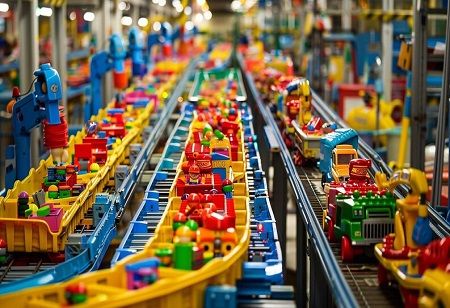
Denmark-based toy company Lego has officially launched a $1 billion plant in Vietnam, an important step toward its global sustainability push. In Binh Duong province near Ho Chi Minh City, the cutting-edge plant is Lego's sixth in the world and it’s second in Asia, with its sights set on serving Southeast Asia's fast-growing market.
Spanning an area of 62 soccer fields, the factory has been designed with energy efficiency and environmental sustainability right at its core. Lego plans to have the plant fully powered by renewable energy by 2026, as part of the company's broader climate goals.
“We are building this factory with the future in mind — for children and the planet,” said Lego, CEO, Niels Christiansen at the launch event. “Our target is to stop adding greenhouse gases by 2050, with a near-term goal to cut emissions by 37 percent by 2032.”
The factory features 12,400 solar panels and a custom-made energy storage facility to reduce carbon emissions and achieve a stable source of clean power. Lego has also entered into a Direct Power Purchase Agreement (DPPA) with clean energy generators, allowing it to directly procure solar and wind power for use in factory operations.
In addition to driving its sustainability agenda, Lego's investment helps Vietnam work towards its national target of becoming net zero by 2050. The plant is anticipated to create thousands of skilled employees, several of whom will be trained at Lego's current manufacturing facilities globally.
Apart from green energy projects, the company is also aggressively pursuing alternatives to oil-based plastics utilized in its beloved bricks. As the transition process continues, Lego still maintains a focus on sustainable manufacturing practices.
“This facility reflects what sustainable manufacturing can look like in the future — a combination of innovation, responsibility, and local impact,” Christiansen added.
As Lego ramps up its green transformation, the Vietnam factory is a flagship project — and a potential template for international manufacturers looking to reconcile sustainability with expansion.

